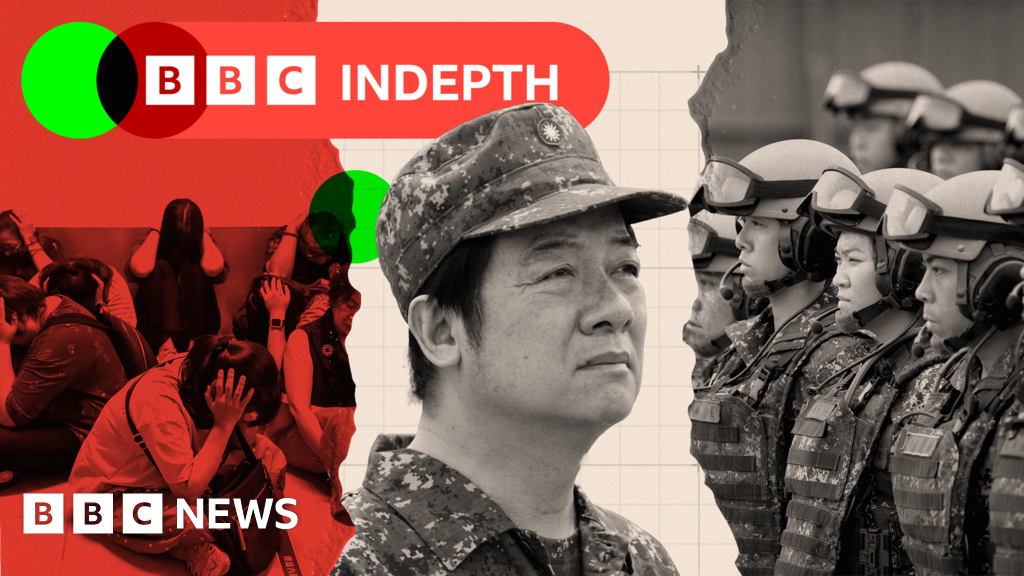It was just another Friday morning on the Taiwanese island of Kinmen, a few kilometres from the coast of China, when an air raid siren pierced the calm. At a local government office, people switched off their lights and dove under tables. Others fled to an underground car park. At a nearby hospital, staff rushed to treat people staggering in with bloody injuries.
But the blood was fake, and the casualties were volunteer actors. Together with the government workers, they were taking part in mandatory civil defence and military drills held across Taiwan last month. The purpose? Rehearsing their response to a possible attack by China.
China has long vowed to 'reunify' with self-governing Taiwan and has not ruled out the use of force. It is a threat that Taiwan is increasingly taking seriously. President William Lai, who took office last year, is behind one of the strongest pushes in years to strengthen defence.
One of his biggest challenges, however, is convincing his own people of the urgency. While his defence drive has garnered support, it has also sparked controversy.
Most people in Taiwan – 65% according to a survey released in May by the Institute for National Defense and Strategic Research – believe it is unlikely that China will attack in the next five years. This skepticism exists despite US warnings about the 'imminent' threat, suggesting that a robust attack capability could be ready by 2027.
Lai's government insists that by preparing for war, they are avoiding it and have pledged to increase defence spending significantly as part of a military reform plan. Drills have become larger, more extensive, with an emphasis on real-life scenarios, indicating serious preparation.
However, public sentiment varies. Some locals see the drills as necessary. Stanley Wei stated, 'I think it's a good thing. Because I do believe the threat has increased.' Yet others, like Mr. Liu, expressed skepticism regarding the need for such drastic preparation, questioning what could realistically be done in the event of an attack.
Experts agree that while the threat may exist, the political dynamics and military realities cause varying perceptions among the Taiwanese populace. While relations with China persist, many believe that an outright invasion would not only be strategically costly for China but also antagonize Taiwanese sentiments further.




















